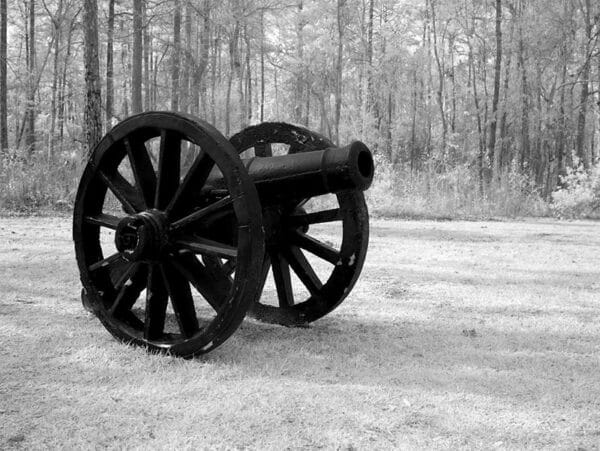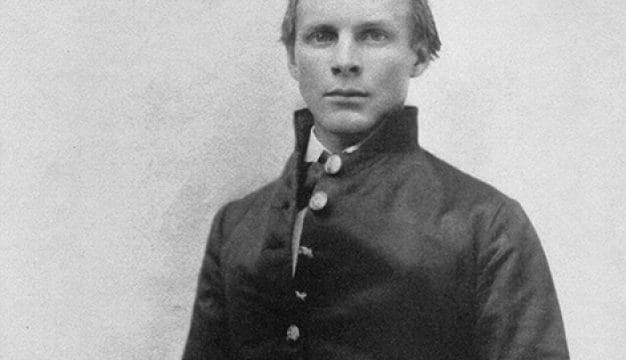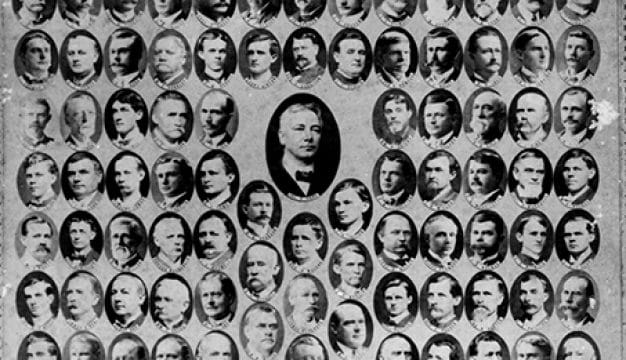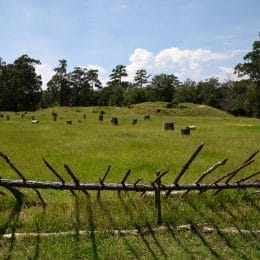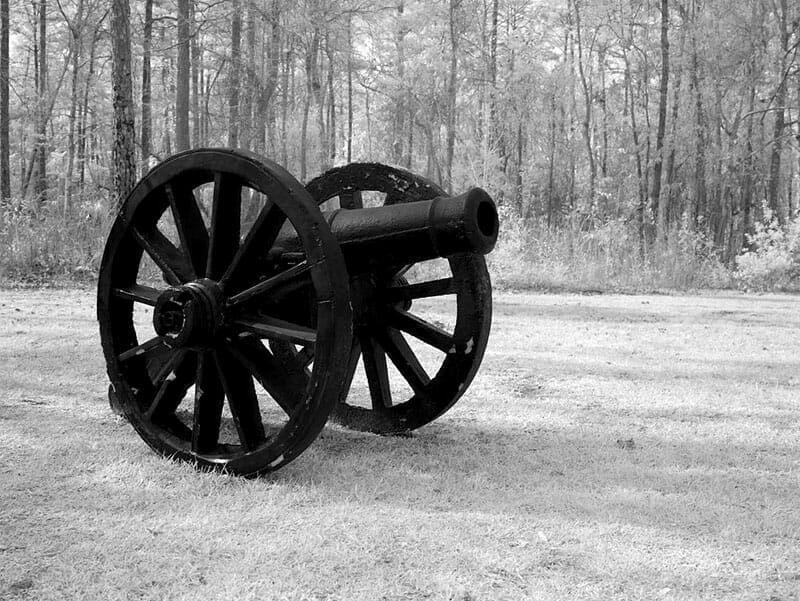Historic Blakeley State Park
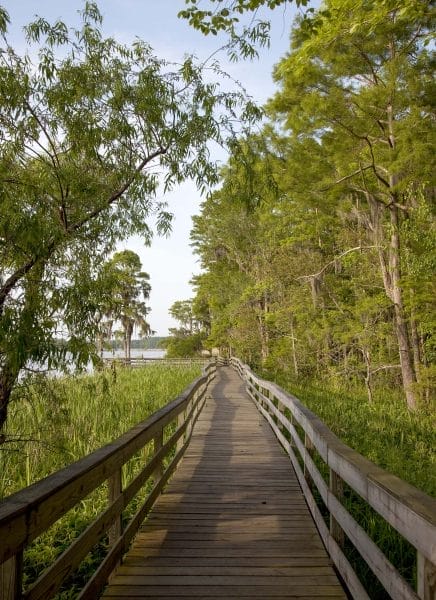 Tensaw River at Blakeley State Park
Historic Blakeley State Park covers 3,800 acres along the Tensaw River in Baldwin County near the town of Spanish Fort. It is the largest site on the National Register of Historic Places east of the Mississippi River and preserves acreage that was important in Alabama’s Native American and Civil War history. The park contains the majority of both the Confederate and Union lines that figured in the Battle of Fort Blakeley, making it one of the best preserved Civil War battlefields in the nation. It is one of only two “Class A” battlefields in Alabama, as designated by the Civil War Sites Advisory Commission, meaning the fighting that took place there played a decisive role in the determining the outcome of a major strategic objective of the war. The park also provides educational and recreational opportunities for visitors.
Tensaw River at Blakeley State Park
Historic Blakeley State Park covers 3,800 acres along the Tensaw River in Baldwin County near the town of Spanish Fort. It is the largest site on the National Register of Historic Places east of the Mississippi River and preserves acreage that was important in Alabama’s Native American and Civil War history. The park contains the majority of both the Confederate and Union lines that figured in the Battle of Fort Blakeley, making it one of the best preserved Civil War battlefields in the nation. It is one of only two “Class A” battlefields in Alabama, as designated by the Civil War Sites Advisory Commission, meaning the fighting that took place there played a decisive role in the determining the outcome of a major strategic objective of the war. The park also provides educational and recreational opportunities for visitors.
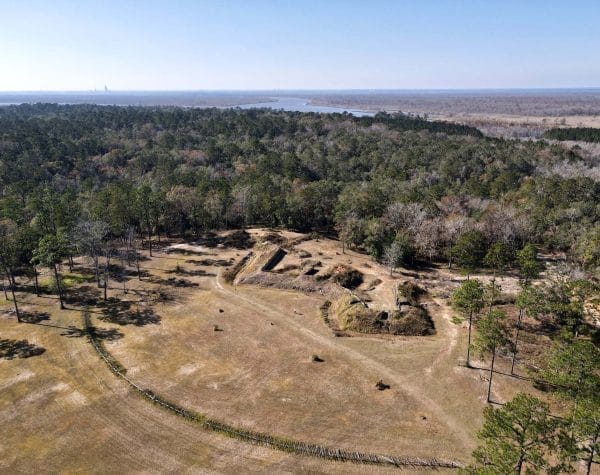 Historic Blakeley State Park
Sometime in the eighteenth century, a French colonial plantation became the first non-Indian settlement in the area. In 1814, the riverfront town of Blakeley was founded and chartered by Josiah Blakeley with the intent of it becoming Alabama’s premier port city. It quickly became a busy center of commerce for southern Alabama, with a courthouse, hotels, docks, private residences, stores, churches, and warehouses and more than 4,000 residents. The town was Baldwin County’s first county seat and at one time was larger than nearby Mobile until yellow fever epidemics in 1822, 1826, and 1828 decimated the populace. By 1828, the Mobile Commercial Register reported that Blakeley had fallen into decay. The county seat was moved to Daphne in 1868.
Historic Blakeley State Park
Sometime in the eighteenth century, a French colonial plantation became the first non-Indian settlement in the area. In 1814, the riverfront town of Blakeley was founded and chartered by Josiah Blakeley with the intent of it becoming Alabama’s premier port city. It quickly became a busy center of commerce for southern Alabama, with a courthouse, hotels, docks, private residences, stores, churches, and warehouses and more than 4,000 residents. The town was Baldwin County’s first county seat and at one time was larger than nearby Mobile until yellow fever epidemics in 1822, 1826, and 1828 decimated the populace. By 1828, the Mobile Commercial Register reported that Blakeley had fallen into decay. The county seat was moved to Daphne in 1868.
During the Civil War, the Confederate Army established the earthen Fort Blakeley on the site with entrenchments and nine gun emplacements. On April 9, 1865, six hours after General Robert E. Lee surrendered at Appomattox, it was the site of one of the last major battles of the Civil War, when 4,000 Confederate troops were attacked and defeated by a force of 16,000 Union soldiers. Each spring, the park hosts a re-enactment or living-history event related to the period.
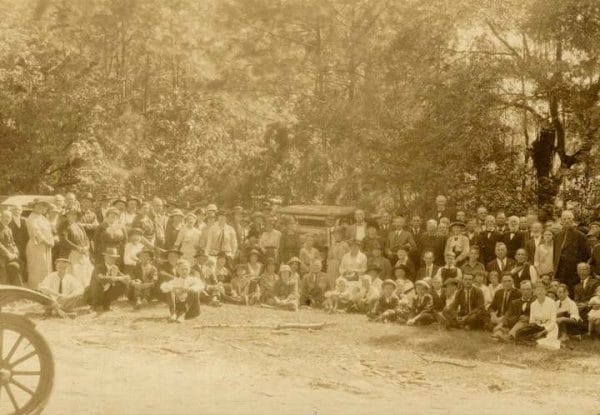 Baldwin County Historical Society at Fort Blakeley
Despite all this history, with the exception of the well-preserved Civil War fortifications, scant evidence of the site’s importance remains. The most prominent features are the miles of breastworks, earthen fortifications, rifle pits, and the remains of artillery emplacements. No trace of the French plantation remains, and the only evidence of the town of Blakeley are the ancient massive oak trees that mark where the streets once existed, gravestones in the old town cemetery, a scattering of ruins of the town jail and a few other structures, and a huge oak tree that was supposedly used as the town’s “hanging tree” for public executions.
Baldwin County Historical Society at Fort Blakeley
Despite all this history, with the exception of the well-preserved Civil War fortifications, scant evidence of the site’s importance remains. The most prominent features are the miles of breastworks, earthen fortifications, rifle pits, and the remains of artillery emplacements. No trace of the French plantation remains, and the only evidence of the town of Blakeley are the ancient massive oak trees that mark where the streets once existed, gravestones in the old town cemetery, a scattering of ruins of the town jail and a few other structures, and a huge oak tree that was supposedly used as the town’s “hanging tree” for public executions.
After the Civil War, the site remained untouched for more than 100 years. In 1976, local civic leaders formed the private nonprofit Historic Blakeley Foundation to acquire land and establish the park. In 1981, the Alabama State Legislature designated Blakeley as a state park and created the Historic Blakeley Authority (HBA), an independent state agency, to operate and manage the park. The HBA is governed by a 21-member board consisting of elected public officials, members of historic organizations and at-large members appointed by the governor. Private land donations and contributions and public funding all aided the initial acquisitions of land for the park. In 1990, International Paper Company donated 1,000 acres to the foundation, and in 1998, 420 additional acres were purchased through the state’s Forever Wild program. In 1995, Blakeley was added to the Civil War Discovery Trail, which links more than 300 significant Civil War sites in 16 states.
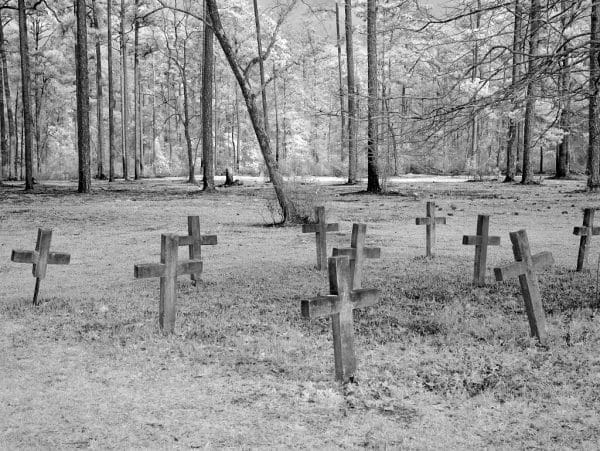 Blakeley Cemetery
Although it is called a state park and receives funding from the state, it is not operated by the Alabama Department of Conservation and Natural Resources, as the other state parks are, but instead by the Historic Blakeley Authority. The park today offers visitors a variety of recreational opportunities with more than 15 miles of hiking and biking trails and horse paths, a quarter-mile boardwalk that leads to the banks of the Tensaw River, and two observation/fishing decks on the Tensaw River. One of the hiking trails, the Breastworks Trail, follows the line of surviving Confederate breastworks and takes hikers through the fort. Blakeley has three campgrounds: one is for tents and has water and power, one features pull-through sites with full utility hookups for recreational vehicles, and the third is designated for tents and pop-up trailers. The park is a key site for birders and is a stop on the Alabama Coastal Birding Trail.
Blakeley Cemetery
Although it is called a state park and receives funding from the state, it is not operated by the Alabama Department of Conservation and Natural Resources, as the other state parks are, but instead by the Historic Blakeley Authority. The park today offers visitors a variety of recreational opportunities with more than 15 miles of hiking and biking trails and horse paths, a quarter-mile boardwalk that leads to the banks of the Tensaw River, and two observation/fishing decks on the Tensaw River. One of the hiking trails, the Breastworks Trail, follows the line of surviving Confederate breastworks and takes hikers through the fort. Blakeley has three campgrounds: one is for tents and has water and power, one features pull-through sites with full utility hookups for recreational vehicles, and the third is designated for tents and pop-up trailers. The park is a key site for birders and is a stop on the Alabama Coastal Birding Trail.
Visitors may also take advantage of multiple cruises with licensed captains to explore the Mobile-Tensaw Delta as well as historic sites associated with the Civil War’s “Mobile Campaign” and the modern Port of Mobile. The park also offers cruises to the Bottle Creek site, the Gulf Coast’s largest Mississippian mound complex.
Further Reading
- Bunn, Mike. The Assault on Fort Blakeley: The Thunder and Lightning of Battle. Charleston, S.C.: The History Press, 2021.
- Walker, Sue. In the Realm of Rivers: Alabama’s Mobile-Tensaw Delta. Montgomery, Ala.: NewSouth Books, 2004.
